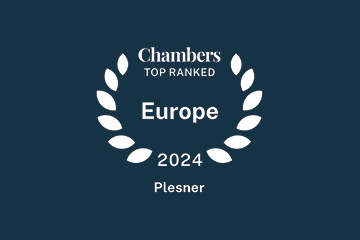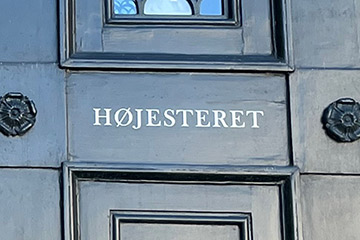ECCO successful in landmark transfer pricing case before the Danish Western High Court
06 August 2020
On 2 July 2020 the Danish Western High Court ruled in favour of ECCO Sko A/S (ECCO) in a landmark transfer pricing case and set aside the Danish tax authorities' discretionary increase of the company's taxable income for the income year 2005. The case was conducted by Plesner.
In 2011, the Danish Central Tax Administration, SKAT (today the Danish Tax Agency) found that ECCO's taxable income for the income year 2005 should be increased discretionarily, stating that SKAT did not find that ECCO's transfer prices for two of the company's affiliated foreign production companies had been agreed on an arm's length basis according to section 2 of the Danish Tax Assessment Act. By a decision in 2015, the National Tax Tribunal concurred in SKAT's ruling concerning the production companies.
The issue of the case before the Danish Western High Court, which was heard over five court days, was whether SKAT's discretionary transfer pricing correction had been justified.
The question was first of all whether ECCO's transfer pricing documentation for the income year 2005 was inadequate and, if so, if it was inadequate to such an extent that the tax authorities had been entitled to make a discretionary assessment of the income according to section 3B of the then Danish Tax Control Act.
At the time of SKAT's decision in 2011, ECCO had prepared two sets of transfer pricing documentation; one set was prepared in 2005, and supplementary documentation was prepared in connection with the tax audit in response to certain points of criticism raised by SKAT. The total transfer pricing documentation included a review of ECCO's fixing of prices and terms in relation to both internal and external production companies and comparability analyses in the form of a comparison of contribution ratios and a comparison of the EBIT margins for own and external production companies based on the TNM-method.
The High Court explicitly included both sets of transfer pricing documentation in its review as to whether ECCO had prepared adequate documentation. In doing so, the High Court confirmed that also documentation prepared in direct response to a transfer pricing audit must be included in the review. In addition, the High Court found that ECCO's transfer pricing documentation was adequate to enable SKAT to assess whether the transfer pricing had been at arm's length, and that ECCO's transfer pricing documentation was not inadequate to such an extent that it could be compared to not having submitted documentation. Accordingly, the Danish tax authorities were not entitled to make a discretionary assessment of the income according to section 3B of the then Danish Tax Control Act.
Next, the question was whether the Danish Ministry of Taxation had proved that ECCO's payments to its own production companies had not been made at arm's length and, more specifically, whether ECCO had paid more for shoes purchased from its own production companies than for shoes purchased from external production companies.
As far as this question is concerned, the Ministry of Taxation had in particular pointed out that ECCO's average contribution margin was higher for shoes produced by the company's external production companies than for shoes from their own production companies. The Ministry of Taxation regarded this as an unusual arrangement which had no commercial explanation.
The High Court agreed with ECCO that the average lower contribution margins were fully justified by commercial conditions extensively documented by ECCO.
The Ministry of Taxation had further pointed out that the pricing in relation to the production companies was based on budgeted costs. In that connection, the Ministry of Taxation submitted that budgeted costs are unsuitable as basis for determining arm's length prices and, further, that the ECCO group's budgeting process resulted in over-budgeting of the costs of the intercompany production companies, and thus a pricing that is too high compared to that of external production companies.
The High Court acknowledged that ECCO's use of budgeted costs was suitable as basis for determining arm's length prices. In addition, the High Court found, based on the evidence produced by ECCO, that the Ministry of Taxation's opinion on over-budgeting of the costs on the part of ECCO would have to be rejected.
Against this background the Danish Western High Court upheld ECCO's claim that the tax authorities' increase of ECCO's income during the income year 2005 was unjustified.
A team from Plesner represented ECCO before the Danish courts.
Lasse Esbjerg Christensen and Jef Nymand Hounsgaard argued the case before the court.
The Ministry of Taxation has not brought the case before the Supreme Court, and accordingly the judgment is final and conclusive.
The issue of the case before the Danish Western High Court, which was heard over five court days, was whether SKAT's discretionary transfer pricing correction had been justified.
The question was first of all whether ECCO's transfer pricing documentation for the income year 2005 was inadequate and, if so, if it was inadequate to such an extent that the tax authorities had been entitled to make a discretionary assessment of the income according to section 3B of the then Danish Tax Control Act.
At the time of SKAT's decision in 2011, ECCO had prepared two sets of transfer pricing documentation; one set was prepared in 2005, and supplementary documentation was prepared in connection with the tax audit in response to certain points of criticism raised by SKAT. The total transfer pricing documentation included a review of ECCO's fixing of prices and terms in relation to both internal and external production companies and comparability analyses in the form of a comparison of contribution ratios and a comparison of the EBIT margins for own and external production companies based on the TNM-method.
The High Court explicitly included both sets of transfer pricing documentation in its review as to whether ECCO had prepared adequate documentation. In doing so, the High Court confirmed that also documentation prepared in direct response to a transfer pricing audit must be included in the review. In addition, the High Court found that ECCO's transfer pricing documentation was adequate to enable SKAT to assess whether the transfer pricing had been at arm's length, and that ECCO's transfer pricing documentation was not inadequate to such an extent that it could be compared to not having submitted documentation. Accordingly, the Danish tax authorities were not entitled to make a discretionary assessment of the income according to section 3B of the then Danish Tax Control Act.
Next, the question was whether the Danish Ministry of Taxation had proved that ECCO's payments to its own production companies had not been made at arm's length and, more specifically, whether ECCO had paid more for shoes purchased from its own production companies than for shoes purchased from external production companies.
As far as this question is concerned, the Ministry of Taxation had in particular pointed out that ECCO's average contribution margin was higher for shoes produced by the company's external production companies than for shoes from their own production companies. The Ministry of Taxation regarded this as an unusual arrangement which had no commercial explanation.
The High Court agreed with ECCO that the average lower contribution margins were fully justified by commercial conditions extensively documented by ECCO.
The Ministry of Taxation had further pointed out that the pricing in relation to the production companies was based on budgeted costs. In that connection, the Ministry of Taxation submitted that budgeted costs are unsuitable as basis for determining arm's length prices and, further, that the ECCO group's budgeting process resulted in over-budgeting of the costs of the intercompany production companies, and thus a pricing that is too high compared to that of external production companies.
The High Court acknowledged that ECCO's use of budgeted costs was suitable as basis for determining arm's length prices. In addition, the High Court found, based on the evidence produced by ECCO, that the Ministry of Taxation's opinion on over-budgeting of the costs on the part of ECCO would have to be rejected.
Against this background the Danish Western High Court upheld ECCO's claim that the tax authorities' increase of ECCO's income during the income year 2005 was unjustified.
A team from Plesner represented ECCO before the Danish courts.
Lasse Esbjerg Christensen and Jef Nymand Hounsgaard argued the case before the court.
The Ministry of Taxation has not brought the case before the Supreme Court, and accordingly the judgment is final and conclusive.







